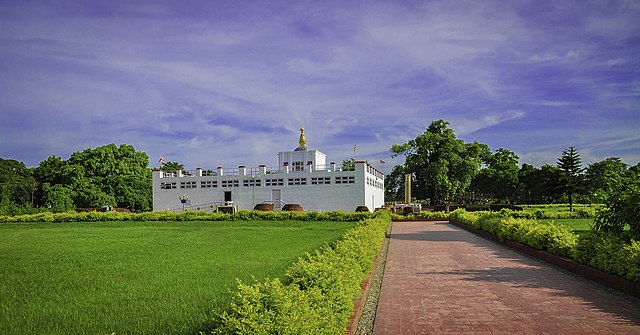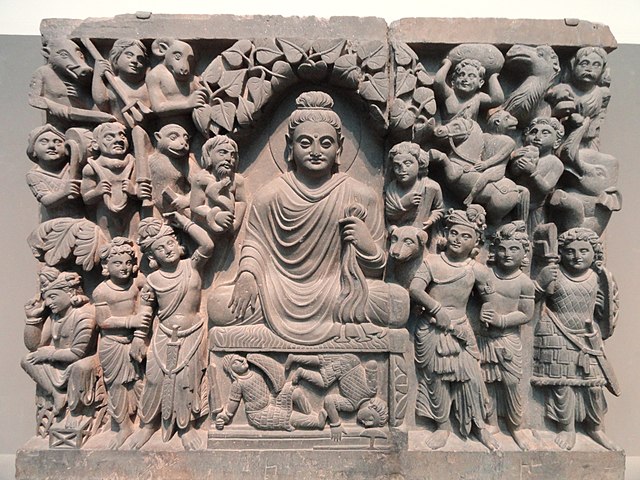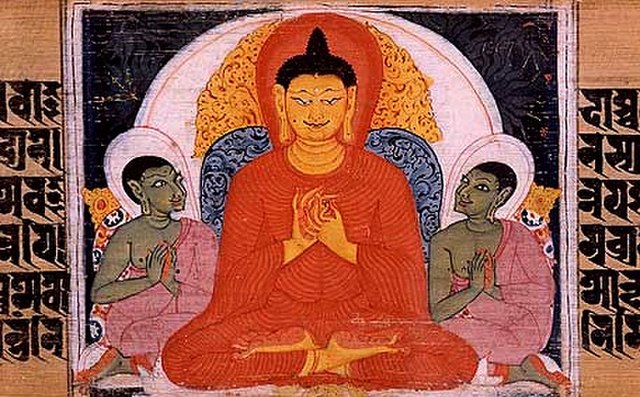Saṃsāra in Buddhism and Hinduism is the beginningless cycle of repeated birth, mundane existence and dying again. Samsara is considered to be dukkha, suffering, and in general unsatisfactory and painful, perpetuated by desire and avidya (ignorance), and the resulting karma.
A thangka showing the bhavacakra with the ancient five cyclic realms of saṃsāra in Buddhist cosmology. Medieval and contemporary texts typically describe six realms of reincarnation.
Buddhism, also known as Buddha Dharma and Dharmavinaya, is an Indian religion and philosophical tradition based on teachings attributed to the Buddha. It is the world's fourth-largest religion, with over 520 million followers, known as Buddhists, who comprise seven percent of the global population. Buddhism originated in the eastern Gangetic plain as a śramaṇa–movement in the 5th century BCE, and gradually spread throughout much of Asia via the Silk Road.
Mayadevi Temple marking the Buddha's birthplace in Lumbini
Enlightenment of Buddha, Kushan dynasty, late 2nd to early 3rd century CE, Gandhara
The Buddha teaching the Four Noble Truths. Sanskrit manuscript. Nalanda, Bihar, India
Traditional Tibetan Buddhist Thangka depicting the Wheel of Life with its six realms





